Miss You Already Review
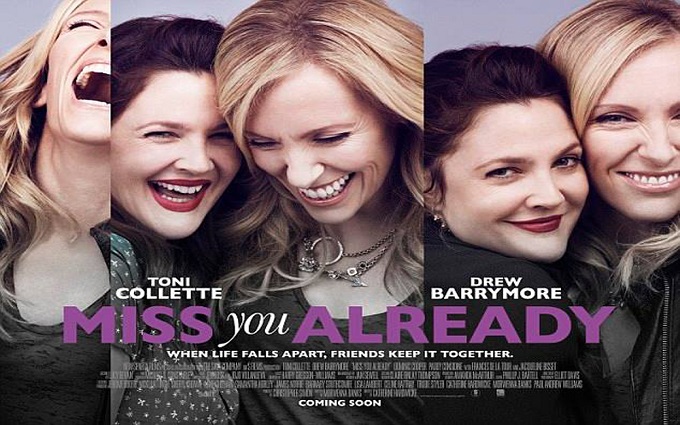
The Plot
Life-long friends Jess and Milly find their relationship pushed to the limits as one battles cancer and the other struggles to start a family of her own.
The Good
Director Catherine Hardwicke and writer Morwenna Banks deliver a poignant and bittersweet exploration of friendship, love and loss. Largely avoiding saccharine clichés the film in particular deserves considerable credit for offering audiences an utterly sincere depiction of the unimaginable reality of facing up to a life threatening illness.
Toni Collette delivers arguably the performance of her career as Milly, a free spirited and high flying over achiever suddenly faced with a devastating diagnosis. Having a gorgeous husband, wonderful children, beautiful home and a successful job only gives her more to loose and little comfort. What’s most commendable is that neither Collette nor the script ever resorts to making Milly just a tragic and flawless victim. She faces her illness with fear and selfishness just as much as bravery and courage.
Collette subtly depicts the full gambit of emotional highs and lows as Milly’s disease dramatically transforms her appearance, friendships and marriage. Milly’s existing charms and less likeable flaws are both amplified by these changes. It’s a realistic exploration of how illness truly affects a complete person and the lives of those around them.
Speaking of which, while Collette deserves extensive praise for her portrayal, Drew Barrymore deserves equal commendation for her role Milly’s life-long partner in crime Jess. While Milly battles through treatment, Jess struggles to balance the exhausting impact of supporting someone at the expense of her own responsibilities and desires.
The consistently underrated Barrymore uses her innate charms and knack for stoic vulnerability to make Jess’s journey just as compelling and significant as Milly’s.
Though the film has a solid supporting cast and owes much to a solidly written script, without the chemistry and skill of its two leads it’s unlikely the film would have been anywhere near as effective and moving.
The Bad
Though Miss You Already is sincerely emotional it may prove difficult viewing for some because of this. In particular the film may be especially difficult for anyone who has had their own lives or those closest to them touched by terminal illness. Though the film does have moments of comedy and joy, they remain largely bittersweet. This won’t be for everyone’s taste and those looking for the easy laughs and uplifting effect of a standard comedy drama may be best placed to look elsewhere for their feel-good fix.
It’s also worth noting that the film feels a little long, mostly as it goes 15-20 minutes beyond a seemingly natural and satisfying end point to deliver a more drawn out and complete conclusion.
The Ugly Truth
Miss You Already is a moving story that tackles potentially somber subject matter in a delicate and poignant fashion. Propelled by brilliant performances by its two leads it grabs audience’s attention and heartstrings from start to finish.
Review by Russell Nelson
Life Review
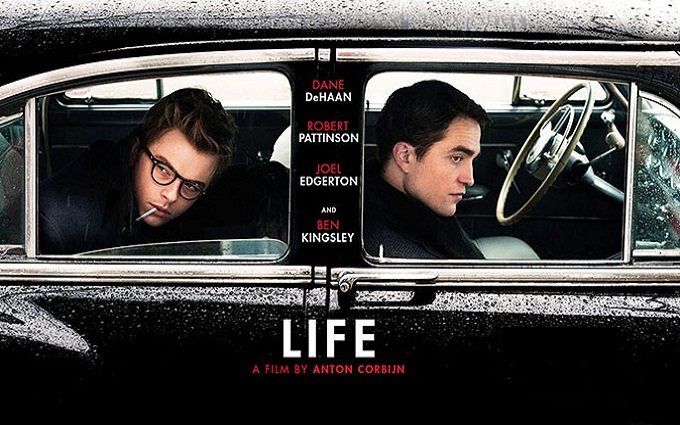
The Plot
A young photographer eager to prove his own artistic skills latches onto actor James Dean who already seems poised to become a reluctant superstar. The pair strikes an uneasy friendship as they work on creating an intimate photo essay that would be regarded as iconic images of a true Hollywood icon.
The Good
Dane DeHaan manages to produce a convincing impersonation of a timeless silver screen icon with the help of some carefully managed makeup and hairstyling. Though lacking in Dean’s unique natural rugged charms, DeHaan worked hard to bulk up and pour his considerable acting talent into transforming himself. The effect is pretty successful and at times he bears a more than passing physical resemblance to the Rebel Without A Cause star.
Director Anton Corbijn likewise does a good job of crafting a look of costumes, locations and cinematography that captures both the elegance and emptiness of Hollywood’s golden era. The film’s bleak and stark visual style is particularly effective during Dean and Stock’s time in New York and at the Dean family farmhouse in rural Indiana.
Speaking of looking good, Robert Pattinson’s devoted army of fans will no doubt be pleased to see him once again brooding away as frustrated photographer Dennis Stock. Even if it’s a little unfortunate that his matinee idol looks at times too obviously eclipse DeHaan’s James Dean impersonation.
The Bad
Although DeHaan does his best to become Dean, in truth it’s a fairly tough challenge for any actor. Aside from the obvious physical differences, in truth there are few people capable of exuding the ageless charisma that exudes from Dean’s tragically brief screen credits and the rare images that survived of him off camera.
Robert Pattinson has worked hard to establish his acting credibility after being catapulted to leading man stardom by the commercially successful but critically mocked Twilight franchise. Unfortunately his determination to avoid trading on his handsome looks has led him to take a series of downbeat roles that eschews his potential charisma in favour of glum brooding.
Alongside DeHaan’s already overly awkward Dean, Pattinson’s desperate photographer is equally introverted. It makes for an uneasy and sterile relationship between the pair. With Pattinson’s character cast as a seemingly selfish absentee father while James Dean is mostly reduced to pretentious mumbling, the sad truth is neither remains particularly likeable throughout the film’s overly long run time.
Aside from a few rare moments of vulnerability for DeHaan’s Dean, the film mostly fails to inject any real personality or convincing depth into either lead.
The Ugly Truth
For those who relish in nostalgia for the golden era of Hollywood this will be a welcome celebration of a unique silver screen star. Those with less initial enthusiasm may find the film’s slow pace and downbeat tone strains patience a little.
Maze Runner: The Scorch Trials Review
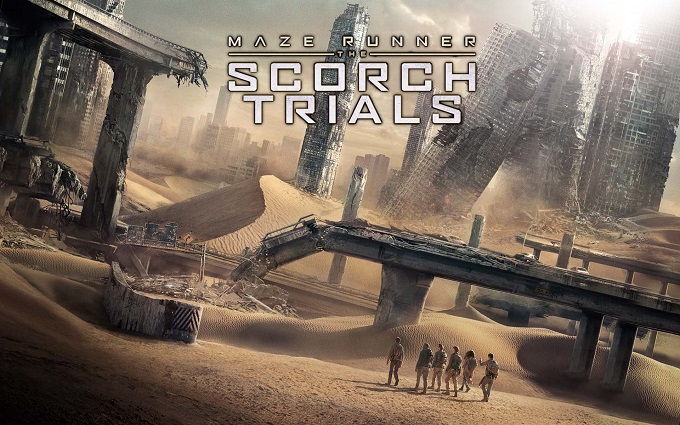
The Plot
Having escaped the maze, Thomas (Dylan O’Brien) and his fellow survivors seem to be finally on their way to a safe haven with the help of the mysterious Janson (Aidan Gillen). But when his true intentions are revealed, escaping his clutches is the least of their problems…
The Good
Picking up immediately after the dramatic conclusion of the first film, Scorch Trials delivers an extremely strong opening half which matches or a times even surpasses competing young adult franchises like Divergent and The Hunger Games. This trilogy seems to be starting to hit it’s stride as it begins to explore a wider post-apocalyptic world, introduces interesting new characters and digs deeper into serious themes of morality and questioning authority.
The introduction of Aiden Gillen is a welcome addition to the series. Armed with a goatee and polo-necked jumper he makes the villainous Janson a convincingly devious and dangerous threat. Likewise Breaking Bad star Giancarlo Esposito is a scene stealing delight as Jorge, a cunning mercenary with complex motives and shifting allegiances.
Rounding out the adult cast, Patricia Clarkson returns as the cold and calculated WCKD leader Ava Paige. Though given significantly more screen time, she remains a mysterious presence. leaving plenty of room for big revelations in the final chapter.
The undeniable focus of the series remains the younger characters. Alexander Flores joins the cast as Aris, a boy from a separate maze (of which, it turns out there are many). Together with Ki Hong Li’s Minho, Kaya Scodelario’s Teresa and Thomas Brodie-Sangster’s Newt, the display of talent is impressive.
However, it’s Dylan O’Brien’s impressive skills of holding up the franchise that is most noteworthy. With two thirds of the trilogy now complete, O’Brien is as talented as ever, pulling off the conflicted determination of Thomas with ease.
The Bad
After a promising start, it’s somewhat disheartening to see that once the characters head out into the apocalyptic desert wasteland of ‘the scorch’, the story slips quickly into the overly familiar territory of a generic action thriller. The city ruins and zombie like monsters that awaits our young band of heroes could literally have been borrowed from countless recent blockbusters. There’s plenty of peril but little memorable originality to be found.
Unfortunately it’s also still impossible to avoid obvious and at times unflattering comparisons with the other post-apocalyptic themed young adult adaptations like Hunger Games and Divergent. While the Maze Runner series has it’s own identity and at least some distinctive elements, it may still feel like a band wagon riding afterthought for less enthusiastic audiences.
In particular Kaya Scodelario’s Teresa could and should have been a major focal point for this film, as her character’s arc is a pivotal plot point for the trilogy. Unfortunately the talented Skins actress is given little screen time to explore this potentially fascinating personal journey. Indeed she’s actually displaced for large portions of the film by Rosa Salazar’s new ‘love interest’ Brenda. It would have been nice to see the film make the most of both it’s female leads.
The Ugly Truth
The Scorch Trials adds some seasoned stars, serious themes and a vastly expanded dystopian world to build upon the promise of the first film. A reliance on generic action means that at times the franchise stills struggles to entirely distinguish itself from similar genre series. Fans of the book will enjoy seeing the journey continue and it definitely sets up an intriguing conclusion.
Review by Johnny Ellis
Nina Forever Review
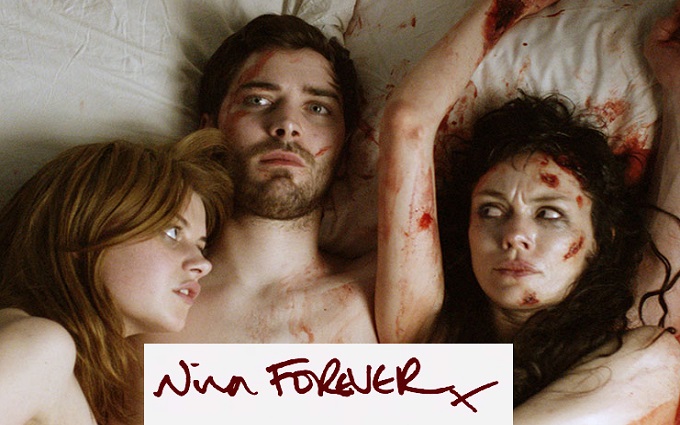
The Plot
After the sudden death of his girlfriend, Nina (Fiona O’Shaughnessy) leads him to attempt suicide, supermarket clerk Rob (Cian Barry) begins to start dating again with co-worker Holly (Abigail Hardingham). But even with Nina dead, she still lives on. And not just through memory…
The Good
For a film which tackles the devastation and despair of grief as one of its main themes, Nina Forever is perfect. With Fiona O’Shaughnessy giving an incredibly realistic and darkly hilarious performance as Nina. To call it realistic is somewhat odd given that she plays a recently deceased corpse throughout, but there’s no denying that her movements feel unnaturally natural as she crawls out through the bed while Rob and Holly try their best on focussing on being intimate while ignoring the blood stained bed sheets and Nina’s sarcastic commentary on the side.
It’s when the three interact that writer-directors Chris and Ben Blaine hit their stride though. the dialogue between the three are so well written that the first feelings of confusion as to whether Nina is actually with them in the room are quickly released and just like Rob and Holly, we’re allowed to simply accept that the bloodied reappearance of an ex girlfriends corpse is just commonplace during sex.
Praise must also go to cinematographer Oliver Russell for the beauty of the films shots and sequences. The pale white look of the film accompanied by the occasional but not overdone blood and gore mixes perfectly together. Obviously making a film which centres around grieving is tricky to do, especially when comical scenes are involved. However the Blaine Brothers manage to pull it off incredibly and more importantly respectably.
The Bad
The only real problem with Nina Forever ends up being its pace. At times, it begins to drag, especially during its opening half. However if you keep with it the reward will be worth it.
The Ugly Truth
Nina Forever is an incredibly acted drama which will undoubtedly burrow into your thoughts for a good while after. Thanks to the incredibly talented writing and directing of the Blaine brothers as well as the brilliant acting of its three main leads, even when it becomes slow moving it still stays intriguing enough.
Review by Johnny Ellis
Legend Review
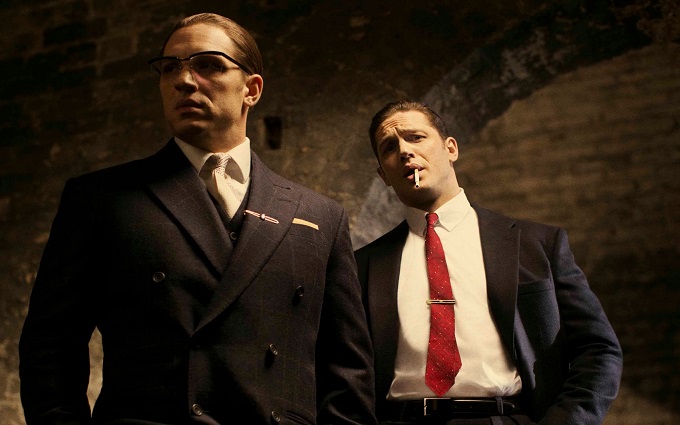
The Plot
Tom Hardy tackles the role of the infamous Kray twins in this latest biopic which chronicles the rise and fall of East London’s most notorious gangsters.
The Good
Twenty-five years after two fifths of Spandau Ballet attempted it, the story of the Kray twins is brought back to the big screen with the help of writer-director Brian Helgeland (L.A Confidential). For the most part, Helgeland’s script is informative and entertaining enough to keep the pace going steady. With the beautiful backdrop of 1960s London and an exciting host of classic 60s rock anthems to accompany it, Legend looks and feels right.
Then there’s the cast. Most prominent of which is of course Tom Hardy, who as usual brings a phenomenal performance to the screen, especially while playing two characters. At no point do the Kray twins ever get mixed up along the way, due partly to the wonderful makeup used particularly on Ronnie, the self confessed uglier of the two brothers. This convincing distinction is also due to Hardy’s impressive acting skills. Though it’s a feat seen all over his career to date, to see a new role from Hardy is always a treat. To get double is pure bliss.
Legend is hardly a one man success in its acting however. A supporting cast which includes, among others Paul Bettany, Taron Egerton, David Thewlis, and Christopher Ecclestone, is undeniably an impressive lineup of British talent. Helgeland’s script also manages to give Emily Browning a much meatier role as Reggie Kray’s suffering wife Frances, the film’s narrator. Frances has plenty to do trapped between Ronnie and Reggie’s constant bickering and at times carries the entire focus of the story herself.
On that note, the challenge of having two Tom Hardy’s on the screen at the same time is barely noticeable even when trying to look out for the camera trickery needed to perform such a task. While they tend to share one half of the screen each when seen on screen together, it doesn’t feel as though it’s forced. In fact, in one particular scene the twins become entangled with each other for quite some time as they try to sort out their differences in the only way a pair of east end gangsters would, and the entire sequence looks flawless.
The Bad
Though the cast list is impressive, one particular member feels outright shunned for the entirety of the film. Christopher Ecclestone, who plays Nipper Read, the man determined to bring down the Krays and end their rule of London, feels like an important yet untold story. The prominence of Browning’s character is interesting but at times it feels like this is at the cost of perhaps better areas of the Kray’s history upon which Helgelands script could have focused. The pace is steady yes, but only just and at the price of obvious missed opportunities.
There is also the troubling issue of the way in which Legend manages to explore such a violent and dark era of East London history and yet remain surprisingly light-hearted. Though in its later stages the film reflects more prominently on the way in which the Kray’s difficult ‘career’ as gangsters affected those closest to them, this doesn’t feel enough to warrant the previous two hours or so that had been spent almost gleefully tagging along with them.
Legend displays acting skill and technical accomplishment, but lacks true purpose. The film deliberately avoids entirely portraying the Krays as either irredeemably evil monsters or charming robin hood rogues. Unfortunately avoiding these perhaps overly familiar caricatures leaves audiences with only an ambivalent and indifferent account. Taking liberal artistic licence also severely undermines the film’s documentary credentials, doing surprisingly little to distinguish its from countless other accounts that have traded so easily on the Kray’s notoriety. The film merely perpetuates the Kray ‘Legend’ rather than truly offering anything new on the subject.
The Ugly Truth
Tom Hardy leads the way admirably in a shamelessly stylish look at a dark period of London’s notoriously violent history. Despite Hardy’s impressive and visceral dual role, overall the film misses considerable opportunities, sacrificing depth to focus on a simplified narrative.
Review by Johnny Ellis